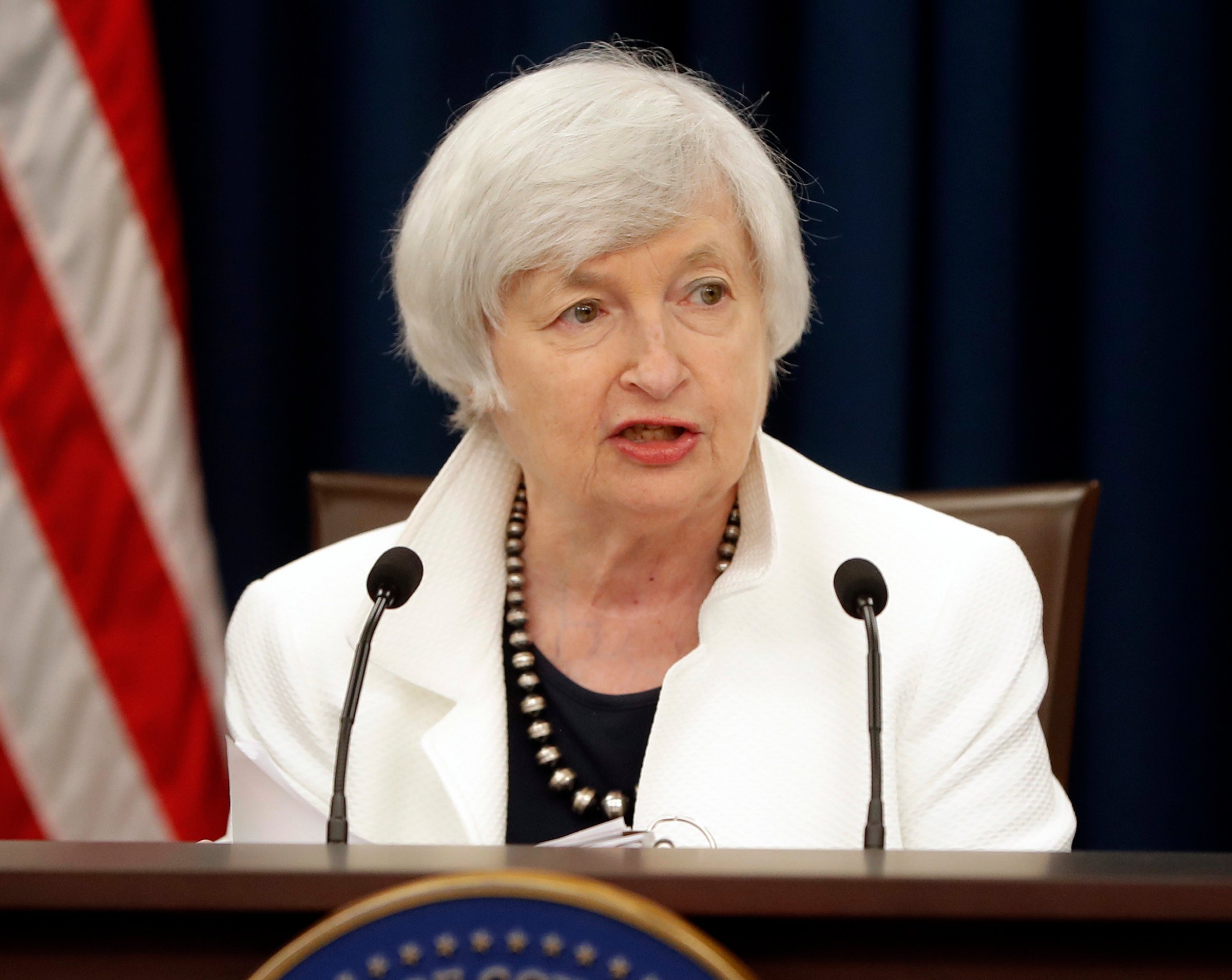
The former head of the Federal Reserve thinks President Donald Trump doesn’t understand basic economics, the central banking system or international trade. But she said it in such a way that you might have missed it.
In an interview with Marketplace that aired Monday, former Federal Reserve chair Janet Yellen was asked if she thinks Trump “has a grasp of” macroeconomic policy, which encompasses everything from unemployment to the rates on bank loans.
“No, I do not,” replied Yellen, who served under Trump during his first year in office.
Her other comments were equally harsh and extremely unusual for the nation’s former top banker to say about a U.S. president, but they were framed in the typical circumlocution of the Federal Reserve, where she served for 14 years.
Yellen, who was nominated as Fed chair by President Barack Obama, said that she doubts that Trump could name its two basic goals of reducing unemployment and staving off inflation, adding that his remarks about what the central bank should do on trade — an area outside its main priorities — showed he doesn’t know how it works.
“I think comments like that shows a lack of understanding of the impact of the Fed on the economy,” she said.
Yellen and Trump have a complicated history. During the 2016 election, Trump harshly criticized her, arguing without evidence that she was doing the bidding of President Barack Obama at the strictly independent central bank. As president, he considered reappointing her but reportedly asked economic advisers if the 5-foot-3 economist was too short for the job.
In the interview, Yellen said she was perplexed by Trump’s focus on trade deficits, which is when the U.S. imports more from a particular country than it exports to them. Trump has repeatedly cited trade deficits with China and other countries as a problem he wants to address, but economists largely agree that they don’t really matter since the U.S. economy is now largely centered on services and not manufacturing.
“I think almost any economist would tell you that there’s no real meaning to bilateral trade deficits,” Yellen said.
Still, Yellen was circumspect about Trump’s policies on trade overall, arguing that although he’s gambling the health of the economy during negotiations with China and other countries, it might turn out OK if it ends with better trade deals.
“I think that’s creating a lot of uncertainty for businesses, and I think my own view is that those shifts are likely to be adverse for the U.S. economy, to the extent that some of these things are bargaining chips, with the hope of lowering trade barriers generally.”
“I suppose the outcome of that, if it’s successful, could be positive…” she said.
Host Kai Ryssdal interjected to say that’s “a big ‘if.'”
“It is as a big ‘if,'” Yellen agreed.
More Must-Reads From TIME
- The 100 Most Influential People of 2024
- Coco Gauff Is Playing for Herself Now
- Scenes From Pro-Palestinian Encampments Across U.S. Universities
- 6 Compliments That Land Every Time
- If You're Dating Right Now , You're Brave: Column
- The AI That Could Heal a Divided Internet
- Fallout Is a Brilliant Model for the Future of Video Game Adaptations
- Want Weekly Recs on What to Watch, Read, and More? Sign Up for Worth Your Time
Write to Abby Vesoulis at abby.vesoulis@time.com